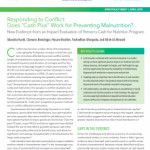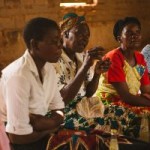Sikandra Kurdi, Clemens Breisinger, Hosam Ibrahim, Yashodham Ghorpade, Afrah Al-Ahmadi
An impact evaluation of Yemen’s Cash for Nutrition program provides new evidence of the benefits of “cash plus” transfer programs to meet nutritional needs in conflict situations. Source: IFPRI Egypt Country Office



